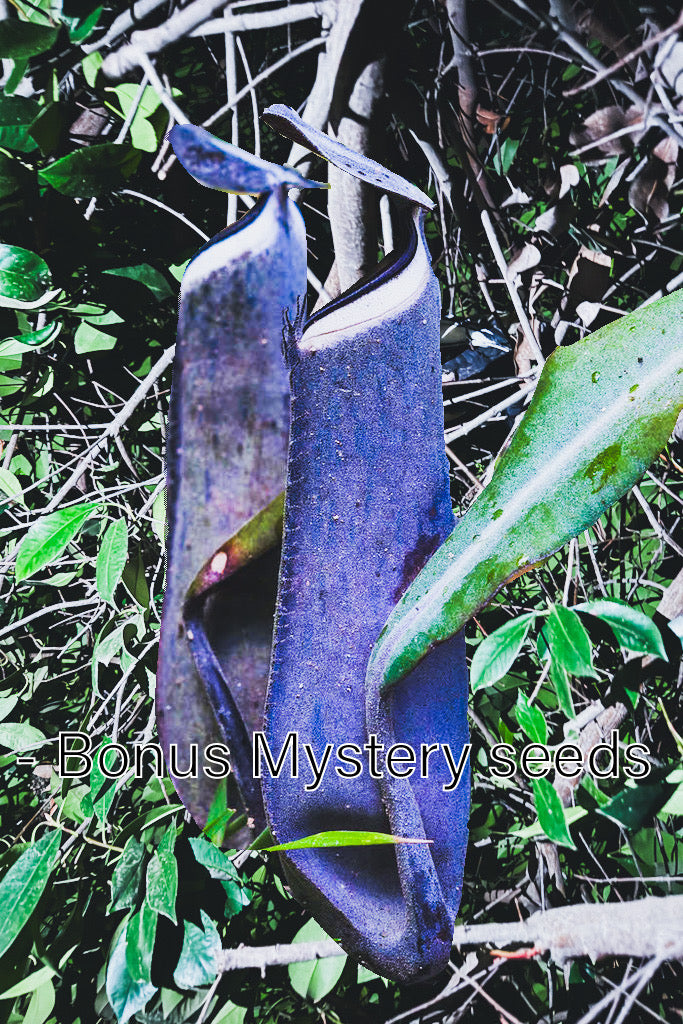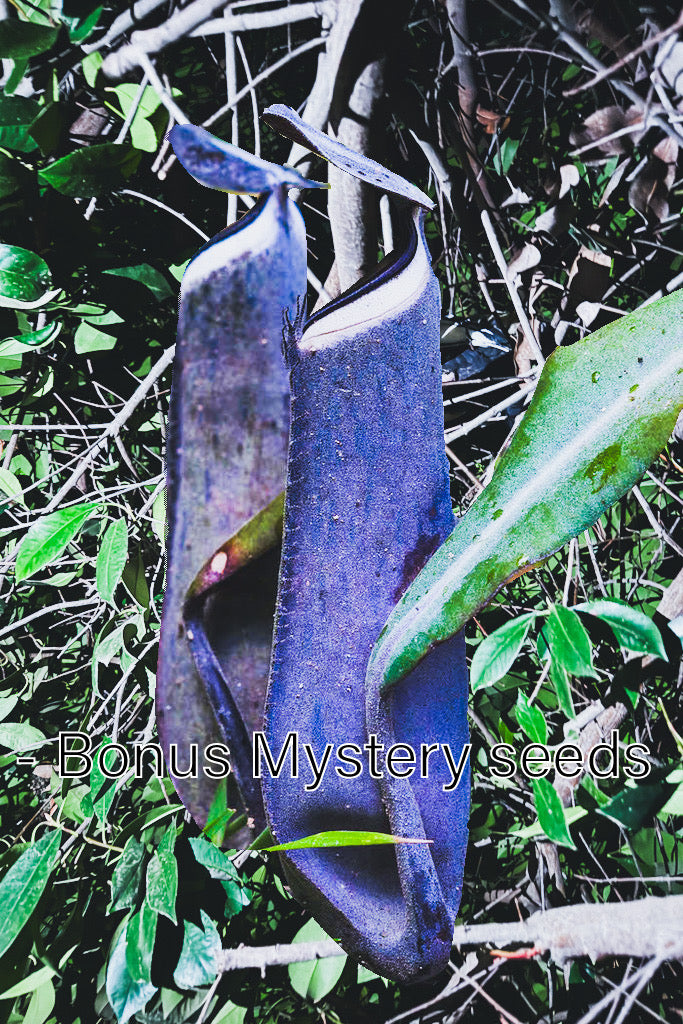1
/
of
1
The Nepenthes Seed Store
100 Nepenthes Albomarginata Black Seeds + Bonus Mystery Seeds
100 Nepenthes Albomarginata Black Seeds + Bonus Mystery Seeds
Regular price
$22.95 USD
Regular price
$34.99 USD
Sale price
$22.95 USD
Unit price
/
per
Couldn't load pickup availability
contents
- 100 Nepenthes Albomarginata Black Seeds
- 15 Bonus Mystery Seeds
Nepenthes Albomarginata ‘Black’ Care Guide
Key Features
- Type: Typically a lowland species but shows some intermediate tendencies depending on the locality.
- Unique Trait: Black pitchers with a characteristic white band around the peristome (hence "Albomarginata").
- Growth Habit: Compact rosettes when young, producing climbing vines as it matures.
1. Environment
Temperature
- Daytime: 25–32°C (77–90°F).
- Nighttime: 18–25°C (64–77°F).
- For intermediate-growing conditions, a slight nighttime temperature drop is beneficial but not critical.
Humidity
- Maintain 60–90% relative humidity.
- High humidity promotes healthy pitcher formation and growth.
Lighting
- Provide bright, indirect light for 12–14 hours daily.
- Avoid direct midday sunlight, which can scorch leaves.
- Grow lights (LED or fluorescent) work well if natural light is insufficient.
Air Circulation
- Good airflow is essential to prevent mold or mildew.
- Place in a well-ventilated area or use a fan to create gentle air movement.
2. Potting and Medium
Potting Medium
- Use a light, well-draining mix. Suitable combinations include:
- 50% long-fiber sphagnum moss
- 25% perlite
- 25% orchid bark or coconut husk chips
Pot
- Choose a pot with ample drainage holes.
- Hanging baskets are excellent for showcasing pitchers.
3. Watering
- Keep the medium consistently moist but not soggy.
- Use only purified, distilled, or rainwater to avoid mineral buildup.
- Water thoroughly and allow excess to drain.
4. Feeding
- Feed pitchers with small insects (e.g., ants, fruit flies, or crickets) every 2–4 weeks.
- Do not overfeed; a single insect per active pitcher is sufficient.
- If pitchers are not forming, mist the foliage with diluted orchid fertilizer (1/4 strength) once a month.
5. Growth and Maintenance
Encouraging Pitcher Formation
- Pitchers form best in high humidity and stable temperatures.
- Stress (e.g., low humidity or abrupt environmental changes) may cause the plant to stop producing pitchers.
Pruning
- Trim dead leaves and vines to promote healthy growth and reduce the risk of fungal infections.
- Use sterilized scissors to prevent disease.
Repotting
- Repot every 2–3 years or when the plant outgrows its container.
- Be careful with roots; Nepenthes are sensitive to disturbance.
6. Seasonal Adjustments
- During winter or dry seasons, supplement with a humidifier and grow lights to maintain ideal conditions.
- Avoid exposing the plant to frost or temperatures below 15°C (59°F).
Common Issues and Solutions
Problem: Pitchers not forming.
- Cause: Low humidity or insufficient light.
- Solution: Increase humidity and adjust light levels.
Problem: Brown or crispy leaf edges.
- Cause: Low humidity or underwatering.
- Solution: Increase misting and check watering routine.
Problem: Mold or fungal growth.
- Cause: Poor air circulation or overwatering.
- Solution: Improve airflow and reduce waterlogging.
Tips for Success
- Stability is key: avoid sudden changes in environment or care routine.
- Monitor for pests like mealybugs or aphids, which can harm the plant.
- Patience is essential, as growth can be slow, particularly for pitcher formation.
With proper care, your Nepenthes Albomarginata ‘Black’ will thrive and produce its stunning, dark-colored pitchers, making it a captivating addition to your plant collection!
Share

